A 2-Part Parent Education Series - Thursdays March 2nd & March 9th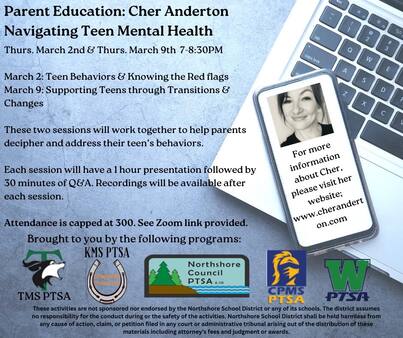 Navigating Teen Mental Health: Cher Anderton Thursdays 7:00PM - 8:30PM March 2 - Teen Behaviors and Knowing the Red Flags March 9 - Supporting Teens Through Transitions & Changes Each session will have a one-hour presentation followed by 30 minutes of Q&A. The Zoom link for both sessions: https://psychnexus.zone .us/j/84932350238 Recordings will be made available after each session. This is intended for middle school and high school parents. Attendance is capped at 300. Recordings: (Recording Links Available Until April 01, 2023) March 02 - Teen Behaviors and Knowing the Red Flags March 9 - Supporting Teens Through Transitions & Changes In partnership with Northshore Council PTSA, Woodinville High School PTSA, Canyon Park Middle School PTSA, Timbercrest Middle School PTSA & Kenmore Middle School PTSA.
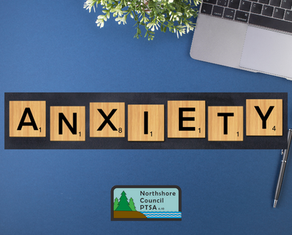 It can save your life, or paralyze you. It can push you to prepare for a test, or it can spiral around in your mind preventing you from doing your daily activities. Anxiety is a normal reaction to different situations in our lives. It is our warning system that alerts us to danger to prepare us to react and get to safety. Anxiety can even be helpful to motivate us to prepare for work, a speech, a move, or even a party! When the fear and distress of anxiety gets in the way of our daily lives, it may be an anxiety disorder. Anxiety is the most common mental health concern in the United States. Nearly 20% of all adults have an anxiety disorder, while 7% of kids will experience anxiety each year, and that number is rising. Anxiety can be caused by genetics, the environment (traumatic events or illness), or a combination. Treatments, including medication, therapy, and relaxation techniques, can be quite effective. When youth, especially, get appropriate treatment, it can make an enormous difference in the trajectory of their lives. There are several types of anxiety, according to NAMI and Mental Health America: Generalized Anxiety Disorder - GAD produces chronic, exaggerated worrying about everyday life which can consume hours each day, making it hard to concentrate or finish daily tasks. A person with GAD may become exhausted by worry and experience headaches, tension, or nausea. Social Anxiety Disorder - More than shyness, this disorder causes intense fear about social interaction, often driven by irrational worries about humiliation (e.g. saying something stupid or not knowing what to say). Someone with social anxiety disorder may not take part in conversations, contribute to class discussions, or offer their ideas, and may become isolated. Panic attacks are a common reaction to anticipated or forced social interaction. Panic Disorder - This disorder is characterized by panic attacks and sudden feelings of terror sometimes striking repeatedly and without warning. Often mistaken for a heart attack, a panic attack causes powerful physical symptoms including chest pain, heart palpitations, dizziness, shortness of breath and stomach upset. Many people will go to desperate measures to avoid an attack, including social isolation. Phobias - We all tend to avoid certain things or situations that make us uncomfortable or even fearful. But for someone with a phobia, certain places, events, or objects create powerful reactions of strong, irrational fear. Most people with specific phobias have several things that can trigger those reactions; to avoid panic, they will work hard to avoid their triggers. Depending on the type and number of triggers, attempts to control fear can take over a person’s life. OCD - Repeated, intrusive, and unwanted thoughts or rituals that seem impossible to control. PTSD - Persistent symptoms that occur after experiencing a traumatic event such as war, rape, child abuse, natural disasters, or being taken hostage. Nightmares, flashbacks, numbing of emotions, depression, and feeling angry, irritable, distracted, and being easily startled are common. If you or your child are struggling with anxiety, there is help! Talk to your doctor or health care professional. As always, take care of yourself first so that you can care for your kiddos.
This article was brought to you by Northshore Council PTSA's Mental Health Committee.
For past articles and more resources, please visit our Mental Health Awareness page. In our area of the Pacific Northwest, many of us suffer from the “winter blues”, or it's more severe type of depression called Seasonal Affective Disorder (SAD). Often when the seasons change to fall and winter and the days get shorter and darker, we might feel sad and not ourselves. We may also get into a slump after the fun and festivities of the holidays have ended. This may cause us to have trouble sleeping, overeating, and have low motivation. Not only is SAD common in people with depressive disorders, but also those with anxiety, panic and eating disorders, and also ADHD. SAD affects mostly women, and generally the onset is between ages 20-30 years of age. This means it may not affect our children as much as us caregivers. We need to take care of ourselves so that we can take care of our loved ones. While it is not fully known what causes SAD, research shows that low levels of the brain chemical serotonin plays a large role, as well as high levels of melatonin. Both of these help maintain daily body rhythms, along with sufficient levels of vitamin D. Traditional treatments include light therapy, vitamin D, talking to a therapist, and possibly some medications. Here are some more ideas for beating the winter blues:
~Get plenty of sleep ~Keep routines ~Exercise, even a little ~Lean into your relationships ~Sit by a sunny window ~Keep things simple ~Eat a well-balanced diet ~Set reasonable expectations and boundaries ~Do things that make you happy ~Take time for yourself to recharge ~Don’t overschedule If these coping strategies do not help, consider talking to your doctor or your mental health professional. And remember, there is the new 9-8-8 hotline if you need someone to talk to right away. Check out these links for more information: This article was brought to you by Northshore Council PTSA's Mental Health Committee.
For past articles and more resources, please visit our Mental Health Awareness page. Kindness has been defined as actions intended to benefit others. It may also be defined as "having or showing a friendly, generous, and considerate nature, and as encompassing gentleness, respect, amiability, and concern" (Johnstone, 2010). As adults, we know that kindness is more than just being nice. Being nice is simply being pleasant and agreeable according to how other people see you. Being kind is intentional, sincere, and voluntary. Kindness is based on your values and ethics. It is grace and love, and can cause a ripple effect that impacts a whole community, even the world! Think about it - would you rather be considered “nice” or “kind”? Benefits of Kindness in School Kindness, from teachers and other students, is essential to positive growth and learning because it promotes healthy relationships and helps us develop lifelong skills that can lead to future success and fulfillment. When students feel cared for and respected, they are more likely to engage in learning. If students don’t feel valued, they’re unlikely to pay attention or do their best in class. Kindness also fosters a sense of community. When everyone treats each other with respect, there’s a strong sense of camaraderie and belonging. This sense of community can lead to students being more engaged in their school and motivated to perform well. In addition, students feel safer and more supported in a close-knit community. Kindness can help reduce bullying and other forms of aggression. When students see their classmates being treated kindly, they are less likely to engage in bullying themselves. In addition, a culture of kindness at school can make it easier for students to speak up when they witness bullying or other mistreatment. Finally, kindness is simply the right thing to do. Everyone deserves to be treated with respect, and no one deserves to be the target of aggression or bullying. By fostering a culture of kindness, we can ensure that everyone in our schools feels valued and supported. How do we help our kids learn kindness? First of all, we need to be kind to ourselves. Our kids learn the most by watching their parents and caregivers. We need to be good models and demonstrate our own self-kindness and show kindness to those around us. Second, we need to practice it often. Say kind things to strangers in the grocery store, give compliments often, hold the door for others, volunteer, and give to charities that mean something to you. Lastly, give positive reinforcement. If you notice your child doing something kind, tell them that you notice those moments and how much it means to you (or those on the receiving end). Some believe that there is less kindness in today’s world. I don’t believe that! I see kindness everywhere! Look for it and you will find it. Practice it and you will spread kindness and happiness around you. Be kind. Kindness creates more Happiness
Kindness Helps Personal Growth Kindness Can Help People Perform Better at School or Work Kindness Is Contagious Kindness Is Good for the Environment Kindness Can Help Build Trust, Communication Kindness Makes Us Better People Kindness Can Help to Build Up Self-Esteem Kindness Can Help Heal Trauma Kindness Makes You Even More Grateful Kindness Manipulates the Brain in a Positive Way Kindness Fosters Empathy Kindness Makes You More Resilient Kindness Helps Us Feel More Connected to Others Kindness Makes Your Community Stronger Kindness Can Save Lives This article was brought to you by Northshore Council PTSA's Mental Health Committee.
For past articles and more resources, please visit our Mental Health Awareness page.
Educational Speakers & Community Events Grants Program Policy
Please make sure to read Northshore Council PTSA's Educational Speakers & Community Events Grants Program Policy before submitting your application. Need Ideas? View the list of past recipients. More Information Learn more about Northshore PTSA's Educational Speakers & Community Events Grant Program. Questions? Email [email protected] 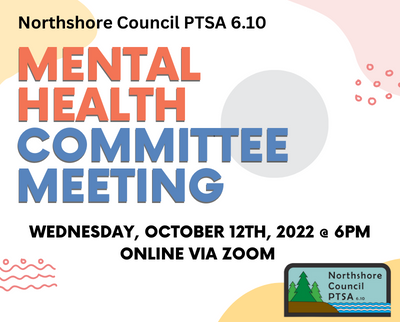 Welcome back for the 2022-2023 school year. We are excited to have our first meeting of the new school year. We invite you to attend and share ideas. Open to All! Date: Wednesday, October 12th, 2022 Time: 6 PM Location: Online via Zoom Join Zoom Meeting https://us04web.zoom.us/j/71180094000? Meeting ID: 711 8009 4000 Passcode: *available upon request* The goal of this committee is to promote mental health awareness and partner to bring relevant trainings, events, and resources to our community.
For questions about the mental health committee and for the meeting passcode, please email [email protected]. Visit our Mental Health Awareness page for more information and resources. 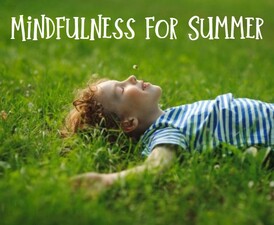 Phew! We’ve made it through another year! Oh, how we all could use time to recharge our bodies and minds. Our kids have gone through the wringer this year, with changing Covid protocols, school shootings, and other unpredictable events. These things quickly add up and take their toll on our mental health. School is almost out, making this a good time to focus on recharging our bodies and minds. These upcoming summer months are a great time to revisit some mindfulness and self-care practices. Mindfulness practice is an excellent (and simple!) way to ground ourselves in a busy world, to stay fresh, and to simplify our lives. Who couldn’t use that? When you focus on right now, this very moment and not the past or what is coming up tomorrow (or even in the fall), you can be more open-minded, intentional, have gratitude and grace. 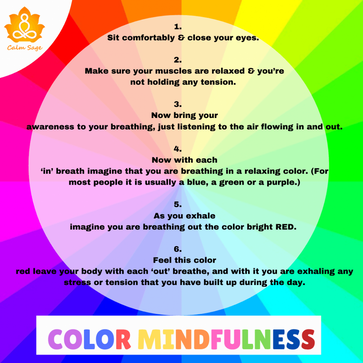 One way to practice mindfulness is to start your day with a purpose. When you set an intention, it is more likely that your actions, words, and responses, especially during tough moments, will be more mindful and compassionate. This practice is best done first thing in the morning, before turning on screens or checking social media. Here are some additional mindfulness exercises to try:
Remember: the purpose of these mindful exercises is to be intentional and focus on one thing at a time. By doing so, you will see improved balance and happiness in your daily lives.
Summer is the perfect time to slow down and smell the roses, as the saying goes. Play that extra board game with your kids before bed. Jump on the trampoline with them after lunch. Take a walk with your partner at sunset. Notice the little things that bring you joy. By being intentional and focusing on one thing at a time, you will see improved balance and happiness in your daily lives. Be mindful. You, your family, and your mental health deserve it.
This article was brought to you by Northshore Council's Mental Health Committee.
Guest Presentation by Northshore School District Ethnic Studies Framework: NSD Assistant Director of Equity and Pedagogy, Melissa Riley, and Northshore students shared a presentation on ethnic studies in the Northshore School District. This presentation answered the questions "What is ethnic studies, why is it important, and what will it look like for kids?" The curriculum will be for grades Pre K-12 and more information can be found here: https://bit.ly/pesbccdei.
Council Business: Approval of the January 20th, 2022 Meeting Minutes which were accepted with minor changes. Approval of the preliminary budget for the 2022-2023 school year. Election of our 2022-2023 officers: Thank you to our hardworking Nominating Committee, Diana Christiansen, Cherry Holmes, and Jasmine Lee Fry, for putting together the slate of candidates! Diana Christiansen read the Nominating Report. The self-nomination period was held in accordance with our e-voting policy with no others submitting their names for nomination. The election script was followed with a reading from the WSPTA bylaws. A motion was cast to accept the slate as presented, seconded, and approved by a voice vote. Congratulations to our incoming 2022-2023 officers!!
*Please be advised that by the time the self-nomination period closed, no candidate had come forth for either Secretary or VP of Events. Council will continue to seek volunteers for these positions with the goal of holding elections for them at a future General Membership Meeting. If interested in serving in either of these roles on an interim basis, please contact us at [email protected]. District Updates:
Council Reports:
We hope you will join us for our next General Membership Meeting on May 16th, 2022 @ 7pm. This meeting will also include our annual Spring Recognition Event! For a full list of our upcoming meetings and events, check out our Calendar. 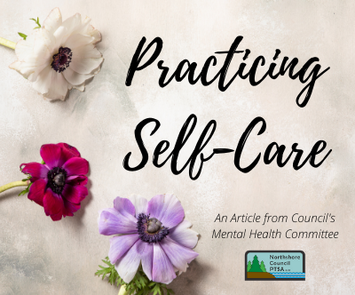 It's April, and with only 2½ months of school left this year, it may be surreal to think that we are nearing the end of our 3rd school year affected by the pandemic. We may have lost things and we may gave gained things, but life is starting to emerge as something somewhat familiar. Some of us may feel abuzz with possibility. Some of us may feel trepidatious or overwhelmed. How do we slow down, collect ourselves, and progress with more purpose and less stress after such a wild ride? By practicing self-care. By definition, self-care means doing what is best for us, like increasing our emotional and physical stamina, improving our self-esteem, and building resilience towards stressors that we can’t eliminate. Basically, the term describes a conscious act we take in order to promote our own physical, mental, and emotional health in order to be better equipped to live our best lives. Self-care isn't just about finding ways to relax. It's about taking care of yourself:
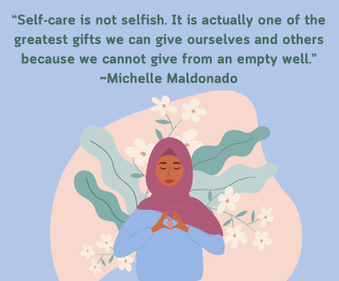 Carve out time each day to deliberately focus on self-care. At first, this may seem like a luxury or selfish. However, proper self-care is something we all need AND deserve. It is never selfish to make your mental health and well-being a priority. Remember, you have to be okay before you can help others be okay!
This article was brought to you by Northshore Council's Mental Health Committee.
Following the film will be a pre-recorded panel session addressing frequently asked questions and common discussion topics from the film.
Register for a viewing link here: https://forms.gle/QPTrFZbXaf6FcnKY9 Deadline to register is Friday, April 1st. This event is co-sponsored by Kenmore Middle School PTSA and Northshore Council PTSA. For questions, email Abby Polasko at [email protected]. |
�
Archives
June 2024
Categories
All
|
Northshore Council PTSA is a welcoming organization that works to support our Local PTAs and serve the children and youth of our community through advocacy, collaboration, education, engagement, leadership, and mentorship.

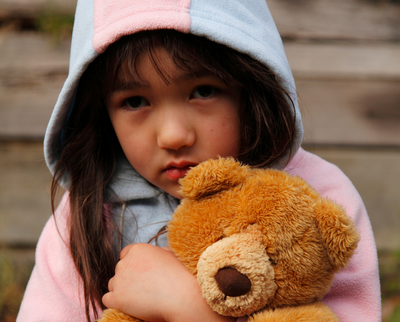


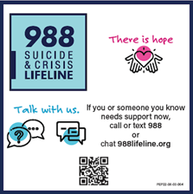
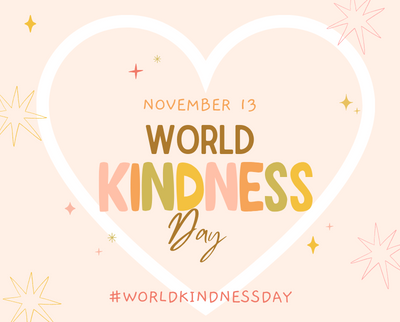
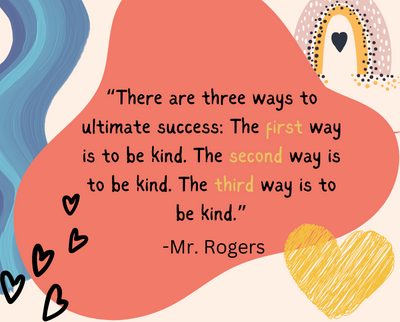
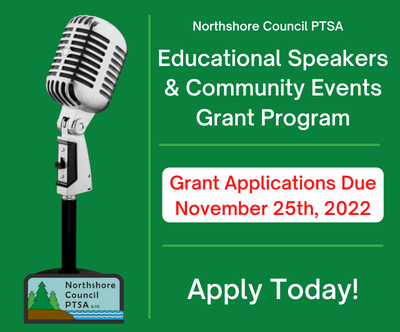
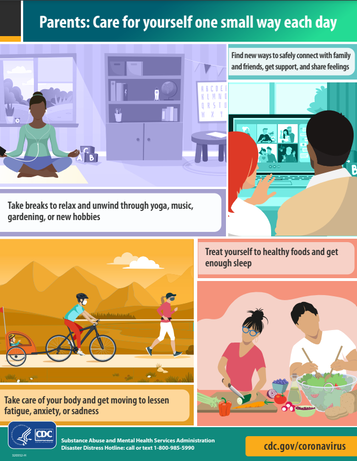
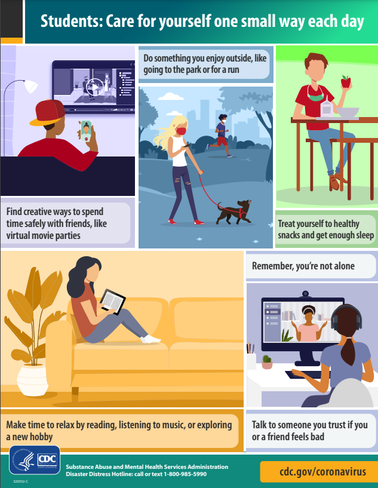
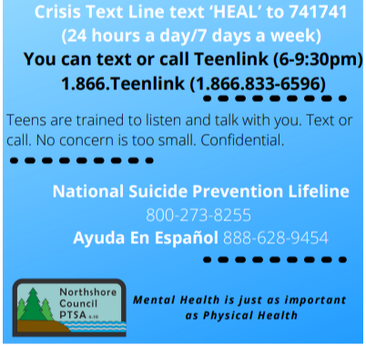
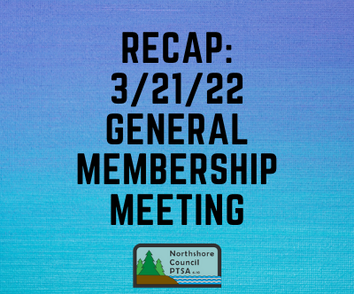
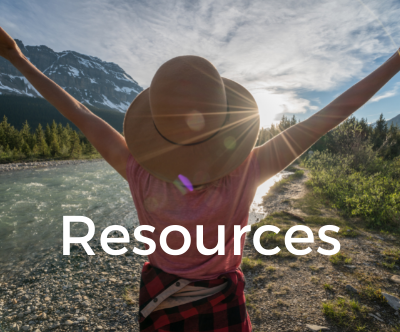
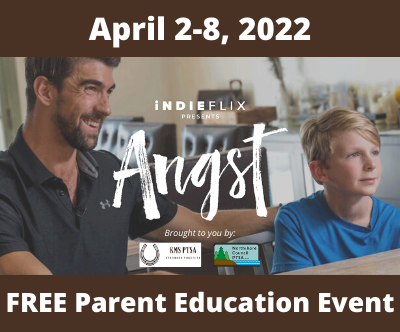
 RSS Feed
RSS Feed

